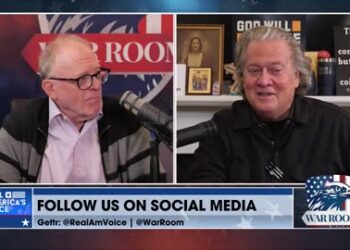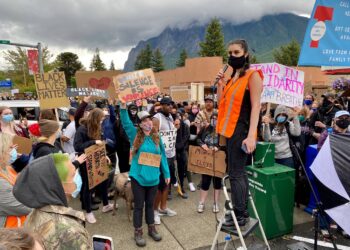Steve Bannon delivers a hard-edged critique of the October 7, 2023, Hamas attacks on Israel. Framing the assault not as an Iran-driven operation but as a Muslim Brotherhood strike bankrolled by Qatar, Bannon warned that the real existential threat lies not in Tehran but in the radicalized corridors of Western cities like London and New York.
His commentary underscored a broader MAGA thesis: global jihad and neo-Marxism have fused into a "red-green alliance,” and ignoring that reality is a fatal mistake.
Bannon has never shied from naming names, and his analysis of October 7 was no exception. While media narratives have long cast Iran as Hamas’ main sponsor, Bannon flipped the script. "Hamas is a franchise of the Muslim Brotherhood,” he said, pointing to Qatar as the true financial engine behind the attacks. The narrative, in his telling, is bigger than rockets and tunnels—it’s about money, ideology, and cover-ups at the highest levels.
One of his sharpest accusations was aimed not at Hamas, but at Israel’s own leadership. Citing reporting from the Times of Israel and remarks from former intelligence officials, Bannon argued that Qatari money had quietly shaped decisions in Jerusalem, including among figures close to Prime Minister Benjamin Netanyahu. The smoking gun, he claimed, was the lack of an official inquiry into how October 7 could have happened. "No investigation means one thing,” Bannon warned: "protecting power at the top.”
He pointed to Israeli "decapitation strikes” in Doha against Muslim Brotherhood operatives as further proof that Qatar—not Tehran—is the hub of the network. "Follow the money,” Bannon said, stressing that Western elites don’t want this story exposed because it implicates their own allies and donors.
But his most explosive claim was that the battlefield isn’t just in Gaza or Doha—it’s in the West itself. "The principal existential threat to Israel and the Jewish people is not Tehran,” he said. "It’s London today, and it will be New York tomorrow.” He accused Qatar of channeling funds into progressive political organizations, such as the Working Families Party and the Democratic Socialists of America, groups with growing influence in U.S. cities. For Bannon, this isn’t just Middle East politics—it’s domestic subversion.
That’s where the phrase "red-green alliance” comes in. Bannon sketched a picture of neo-Marxist movements and radical Islamist networks operating in tandem, bound together by shared hostility to the West and bankrolled by Gulf petrodollars. He pointed to political candidates in New York with ties to these networks, calling them "Faustian bargains” that will eventually consume the city from within.
The October 7 attacks, in this framing, were not an isolated tragedy but a preview of what happens when elites look the other way, when petrodollars dictate policy, and when globalist institutions sacrifice truth to maintain power. The absence of an Israeli inquiry was more than political theater—it was a template for how cover-ups work everywhere.
Bannon’s takeaway for his audience was urgent but straightforward: learn the patterns. Qatar’s fingerprints are all over the financing of both jihadist operations abroad and radical political movements at home. The same playbook seen in Europe—where Islamist enclaves fuse with hard-left activism—is now underway in America.
For Bannon, this connection is directly tied to MAGA’s institutional mission. Just as redistricting and census battles are about seizing structural control before 2026, exposing Qatar and the Muslim Brotherhood is about denying legitimacy to the global networks funding America’s enemies. Both require what Bannon calls "maximalist urgency”—no compromises, no illusions.
His warning cut deeper than foreign policy analysis. It was a call to arms for his listeners: resist the cover-ups, expose the money flows, and recognize the alliances forming against you. Because if October 7 proved anything, it’s that enemies rarely attack alone—and they often have help much closer to home than anyone admits.





